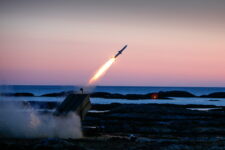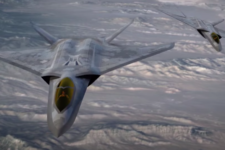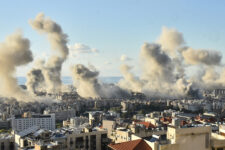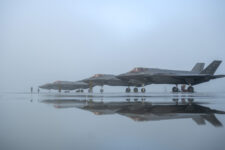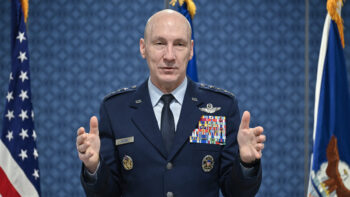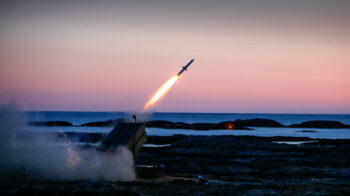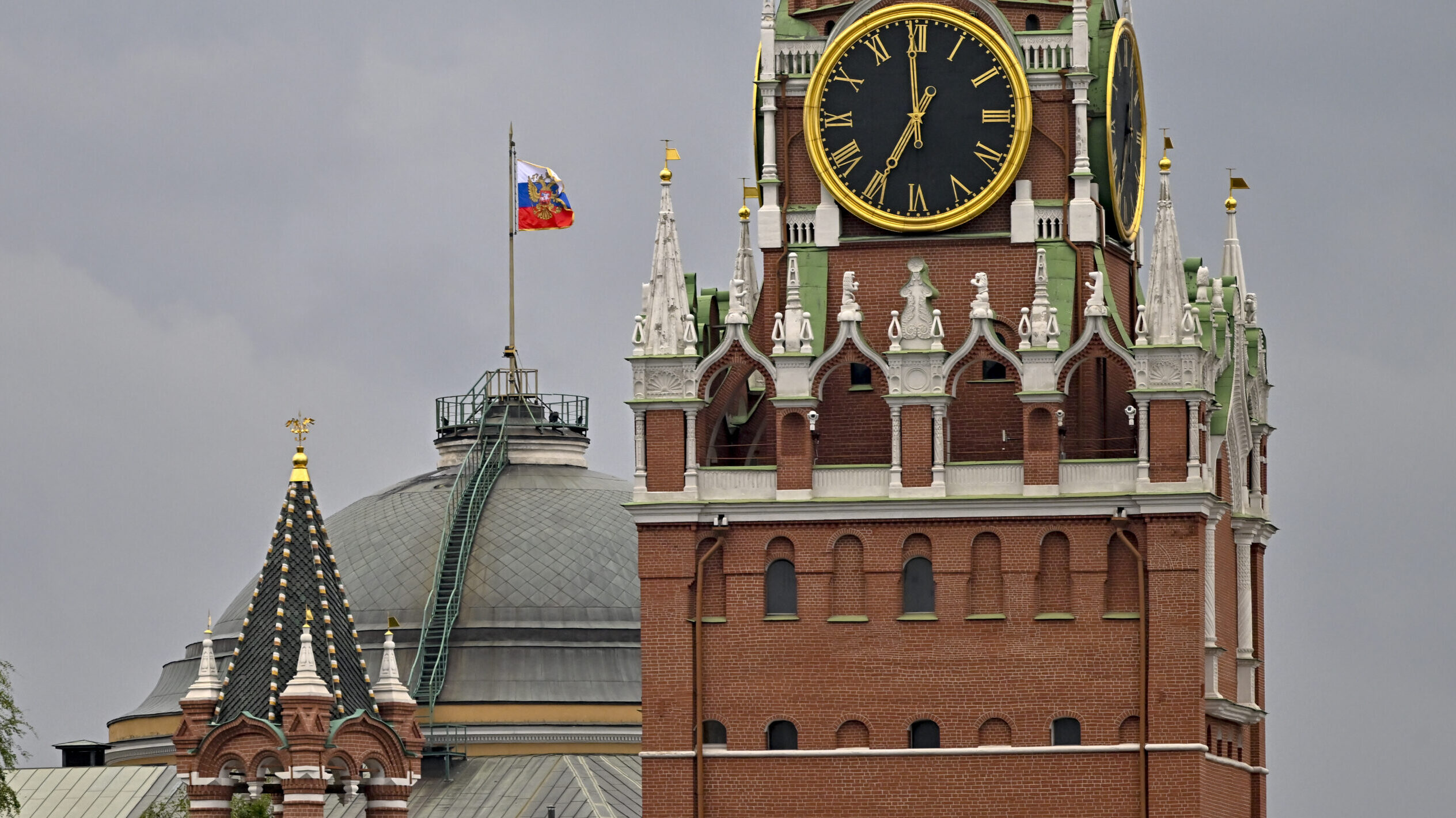
A view of Kremlin after the drone attack in Moscow, Russia on May 03, 2023. Kremlin reported that Ukraine attempted to attack Russian President Vladimir Putin’s residence with drones at night. (Photo by Sefa Karacan/Anadolu Agency via Getty Images)
WASHINGTON — The defense minister of Lithuania believes the Russian government organized this week’s purported drone strike against the Kremlin as part of a disinformation effort, he told Breaking Defense.
“I believe … that it’s a Russian job,” Arvydas Anušauskas told Breaking Defense in an interview today in Washington. Speaking through a translator, he stressed that Russia gives heavy importance to symbolism — indicating that a decision to stage a strike against the Kremlin itself, the symbolic heart of Russia’s government, could be used to stir up pro-war sentiment.
“Maybe [it] is an attempt to once again mobilize the society of Russia, or to prepare them for the next mobilization,” he added.
On Wednesday, video began circulating of what appeared to be a small drone flying near a flagpole atop the Kremlin and exploding. Russian government accounts began pushing the video out alongside claims there were two drones, that they were shot down, and that it was a Ukrainian assassination attempt on Russian President Vladimir Putin.
Ukraine has denied any role, and Ukrainian President Volodymyr Zelensky, like Anušauskas, said it was a Russian provocation.
“It’s all really simple — Russia has no victories,” Zelenskyy said. “He [Putin] can’t further motivate his society, he can’t send his soldiers into death anymore, and he can’t motivate his country anymore… now he needs to find any possibility to motivate them.”
Anušauskas did not give further reasoning for his belief that the strike was plotted by Putin, but there is clear skepticism across the NATO alliance about the Kremlin’s claims. Experts have pointed out that Putin is known to rarely be in the Kremlin overnight, while others have noted that there was no chance even an explosive-laden quadcopter would be able to penetrate the thick walls of the building.
Astonishing footage of last night's drone attack on the Kremlin pic.twitter.com/3rghCHdIed
— Francis Scarr (@francis_scarr) May 3, 2023
Speaking before a Senate hearing today, Avril Haines, US director of national intelligence, said “at this stage we don’t have information that would allow us to provide an independent assessment” on the incident. US officials have been more adamant in pushing back on claims from Russia that Washington organized the attack, with White House National Security Council spokesman John Kirby calling it a “ludicrous claim” and a lie, “plain and simple.”
Serious Russian Offensive Seen As Unlikely
During her hearing, Haines also assessed that Russia would likely struggle with launching a new offensive in Ukraine this year.
“Even if Ukraine’s counter offensive is not fully successful, the Russians are unlikely to be able to mount a significant offensive operation this year. In fact, if Russia does not initiate a mandatory mobilization and secure substantial third-party ammunition supplies beyond existing deliveries from Iran and others, it will be increasingly challenging for them to sustain even modest offensive operations,” Haines said in her opening comments.
Anušauskas, for his part, agreed that Russia has expended its ability to make serious offensive moves in the near-future.
“Every offensive needs resources. This war has been continuing already for 14 months and we can see that, actually, Russia carried out several offensives, but it nearly used all of its resources in terms of ammunition, missiles and so on,” he said. “So it is no longer capable to launch offensives without Iran’s assistance or terrorize Ukrainian towns without its help.
Despite Moscow’s massive advantage in people, “it does not have the capability to provide them, to train them and to supply them with a heavy armed equipment that is necessary,” he added. “So now, it may not be capable to launch an offensive — but it does not mean that in [the future] it will not replenish its capabilities if it is not in war, of course.”
Ashley Roque in Washington contributed to this report.





